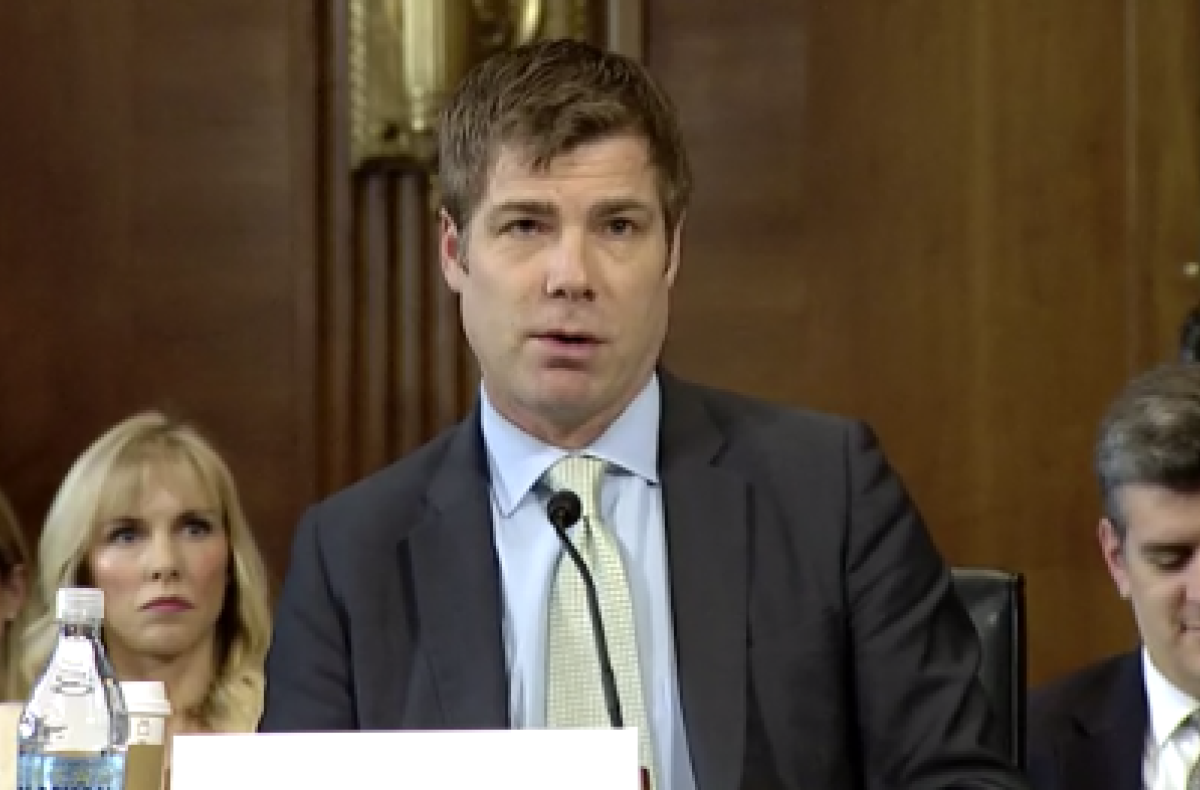The Woods Institute is now part of the Stanford Doerr School of Sustainability
Stanford Scholar Testifies at U.S. Senate on Wildfire Impacts on Grid Reliability

Michael Wara
Dec 20, 2019
By:
Wildfires are a major threat to electric grid reliability in the Western U.S. Few people know the details better than Stanford Research Scholar Michael Wara, Director of the Climate and Energy Policy Program at the Stanford Woods Institute for the Environment. Wara, who also serves on the state of California’s Catastrophic Wildfire Cost and Recovery Commission, testified on the issue at a Dec. 19 hearing before the U.S. Senate Committee on Energy and Natural Resources.
The hearing to “Examine the Impacts of Wildfire on Electric Grid Reliability” was chaired by Sen. Lisa Murkowski with Ranking Member Sen. Joe. The committee put particular emphaisis on the problems illustrated in California, utilities have increased the use of Public Safety Power Shutoffs (PSPS) when winds are high to avoid wildfire ignitions.
“The use of PSPS has both prevented wildfire and caused widespread disruption to families and businesses, especially in Northern California,” Wara said. “PSPS events, though they do dramatically improve safety, are likely very costly to the health of the economy, especially in smaller communities.” Wara estimated that economic impacts from PSPS events cost customers more than $10 billion in 2019.
“The Camp Fire was a sobering wakeup call on the inherent risk of maintaining thousands of miles of above-ground power lines across fire-prone landscapes,” Murkowski said. She described the challenge of the recurring blackouts, which may be California’s “new normal” for the next 10 to 30 years.
Other witnesses present at the hearing included Carl Imhoff, Manager of the Electricity Market Sector for the Pacific Northwest National Laboratory, Scott Corwin, Executive Director of the Northwest Public Power Association, B. Don Russell, Distinguished Professor of Electrical and Computer Engineering and Director of the Power System Automation Laboratory at Texas A&M University, and Bill Johnson, CEO and President of PG&E Corporation.
Much of the discussion focused on PG&E and what the California power utility’s plans are to address infrastructure challenges, balance the needs of customers with the threats from wildfires, and compensate those who have been affected by power line-caused wildfires. Johnson detailed how the utility is working to reduce vegetation which can fuel wildfires and check lines in high fire risk areas. “We are operating on all fronts to make this system safer and more resilient,” he said.
Wara warned even when lines and towers are checked and inspected regularly, there are serious questions concerning the safety of the bulk transmission system for electricity. “In particular, PG&E has stated publicly that the tower suspected as the cause of the Kincaid Fire was inspected on multiple occasions over the past two years. We still don’t know why the jumper that apparently ignited the Kincaid Fire was able to pass multiple inspections and yet fail in high winds,” Wara said.
Wara explained that U.S. electricity transmission and distribution systems were not built for the changing weather and climate conditions that are intensifying wildfire risk and set to worsen over the next few decades.
“Enhanced measurement of system characteristics to identify early warning signs of potential failure will be important to cost-effectively addressing the risks created by the combination of aging electric transmission infrastructure and wildfire threats supercharged by climate change,” Wara warned.
As the epicenter of many of the worst wildfires in history, California can provide valuable lessons moving forward, according to Wara. “The lessons learned in California over the past several years of catastrophe and in future as we work to avoid its recurrence can be fruitful for other western states as the wildfire threat – from the electric transmission and distribution system and from other causes – increases due to climate change.”
A video of the hearing is available as well as Wara’s full written testimony.
Contact Information
Christine H. Black
Associate Director, Communications
650.725.8240
ChristineBlack@stanford.edu
Devon Ryan
Communications Manager
650.497.0444
devonr@stanford.edu
Rob Jordan
Editor / Senior Writer
650.721.1881
rjordan@stanford.edu


